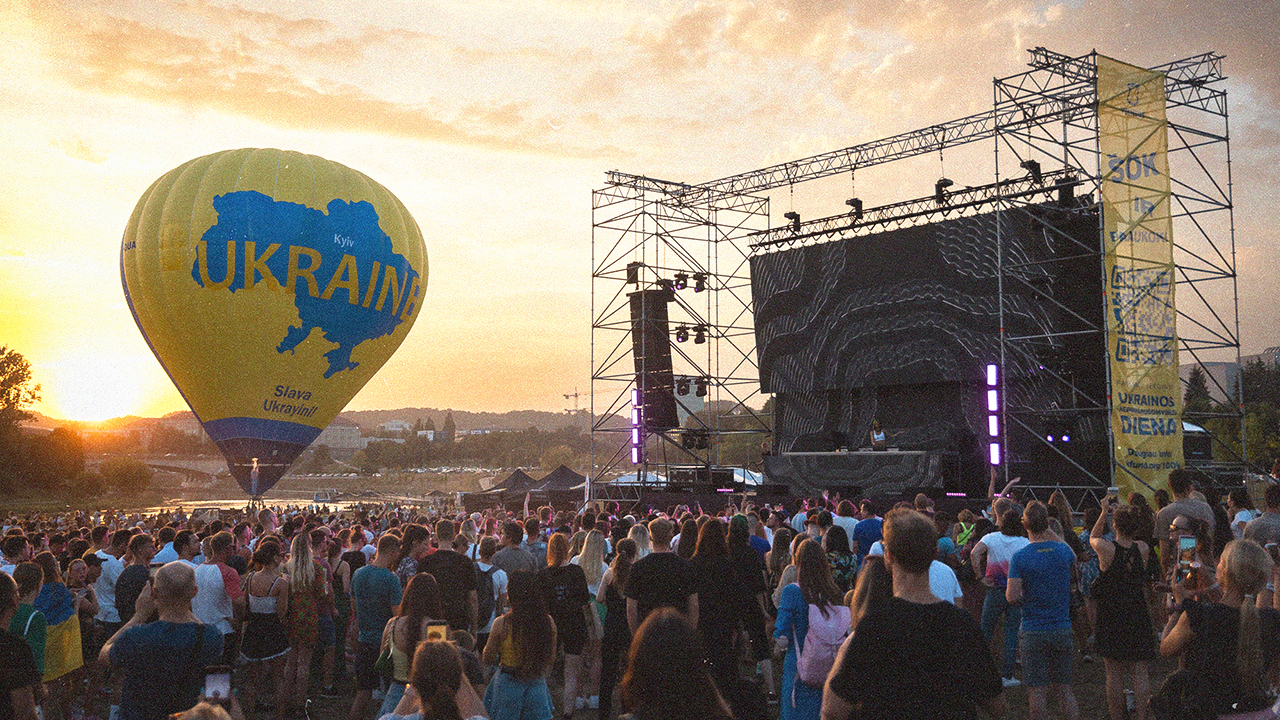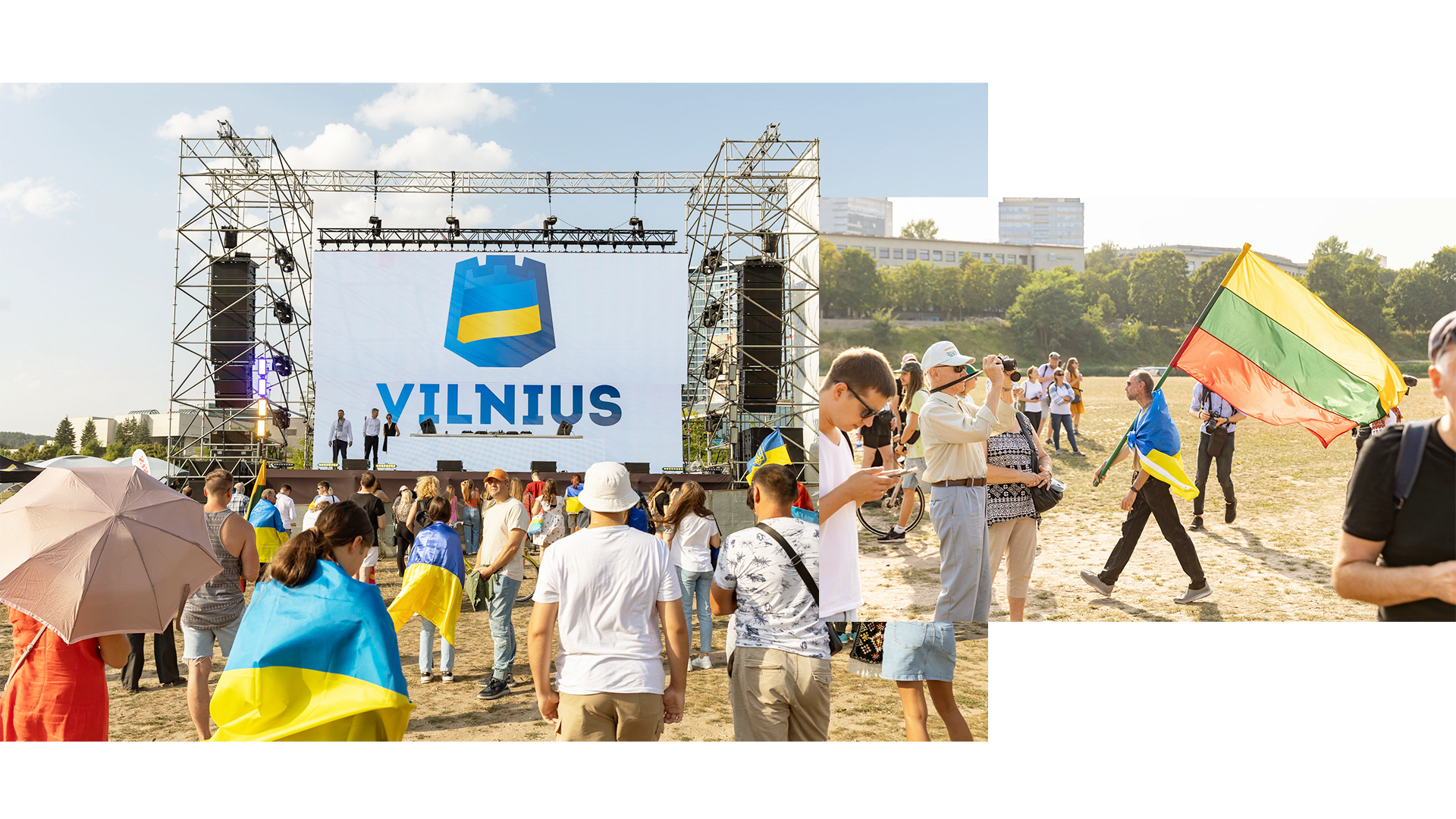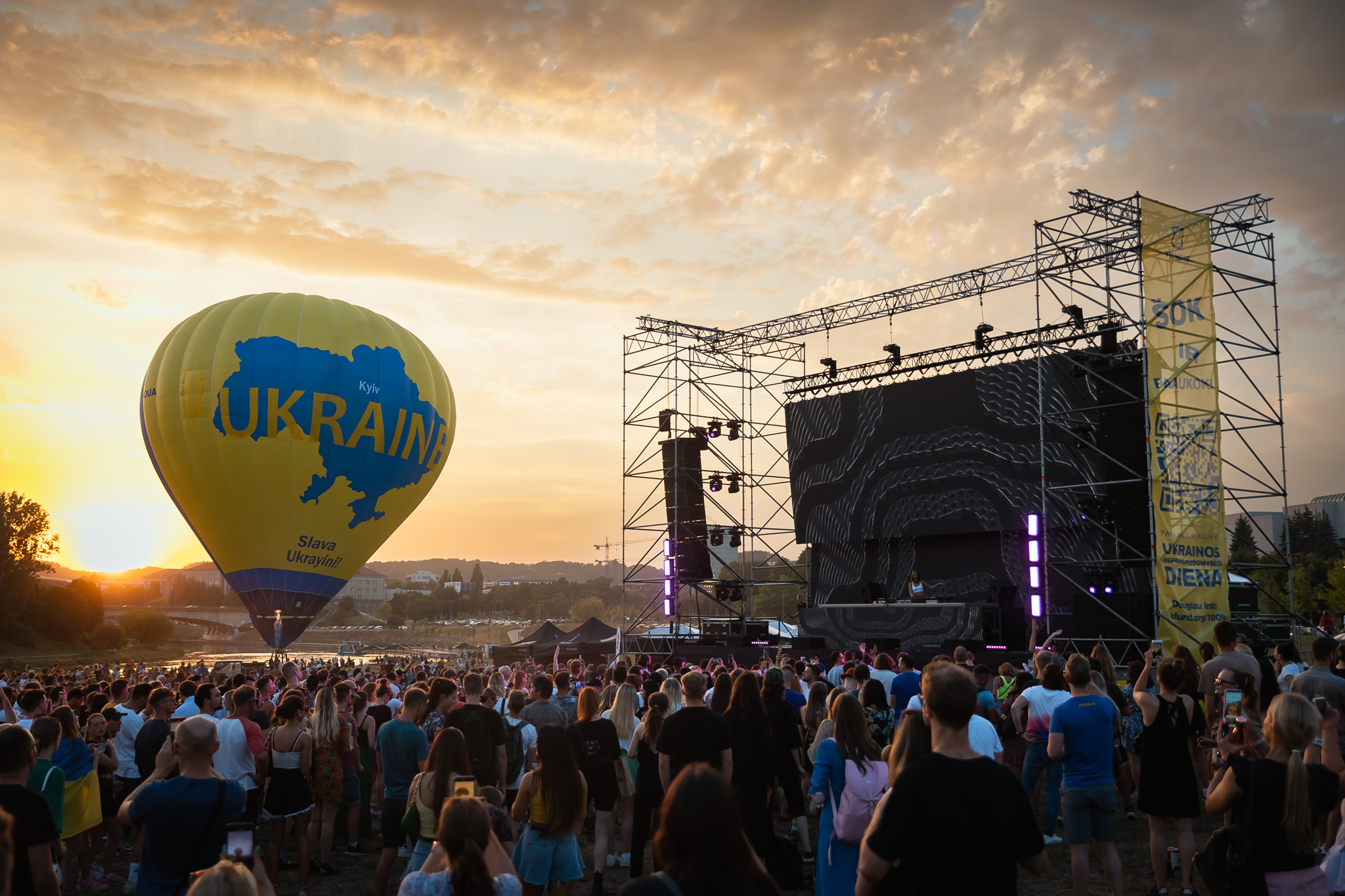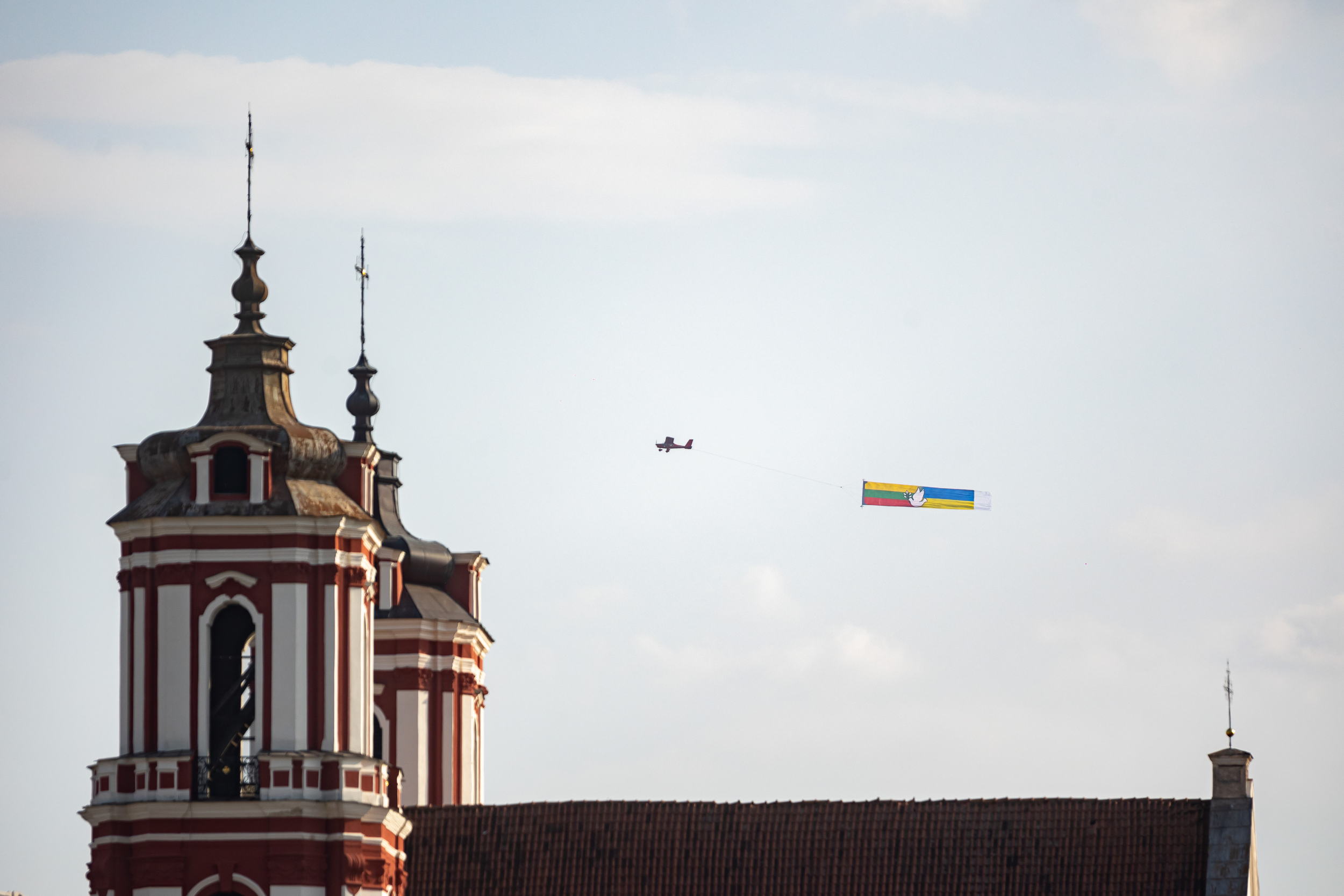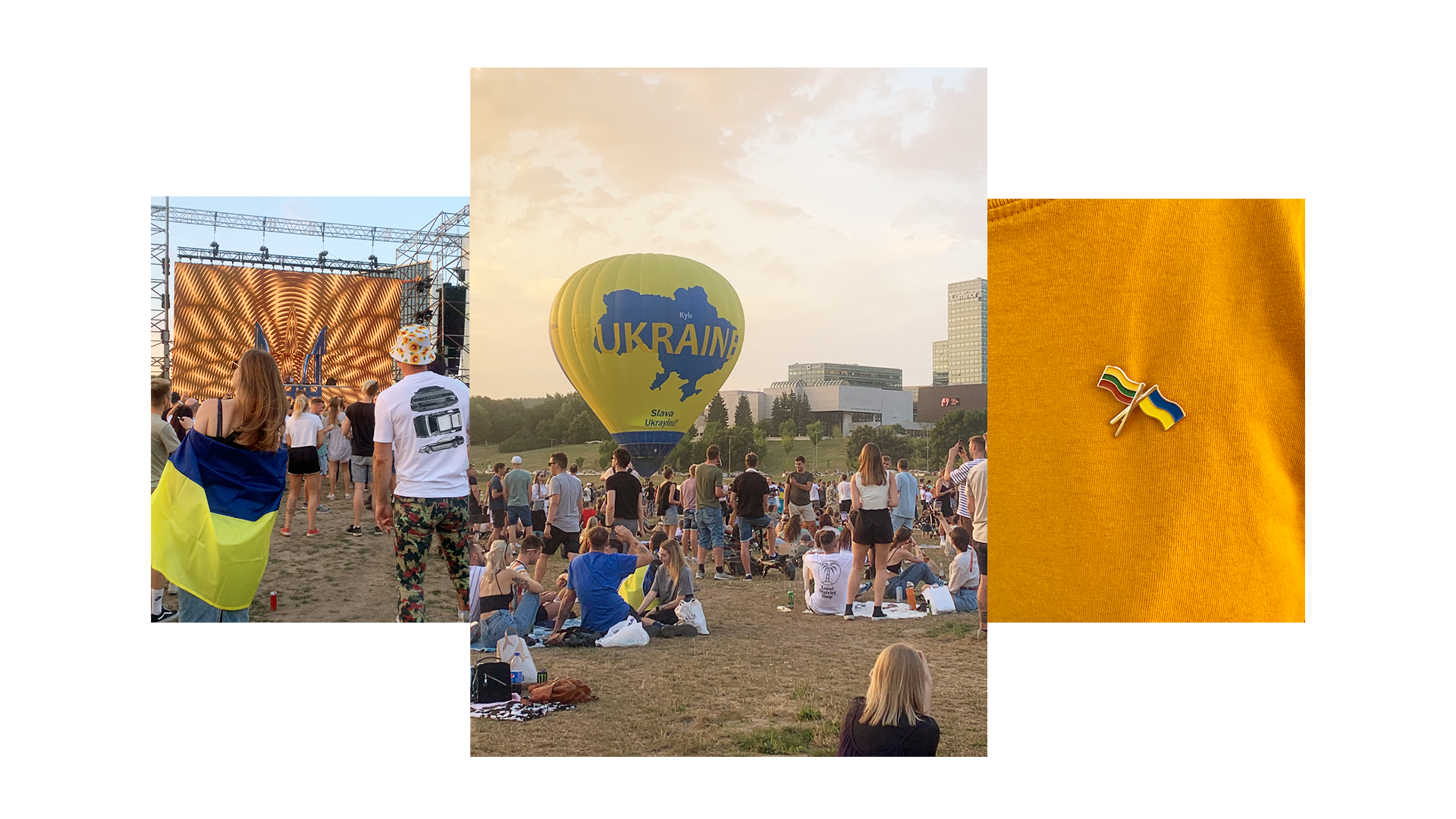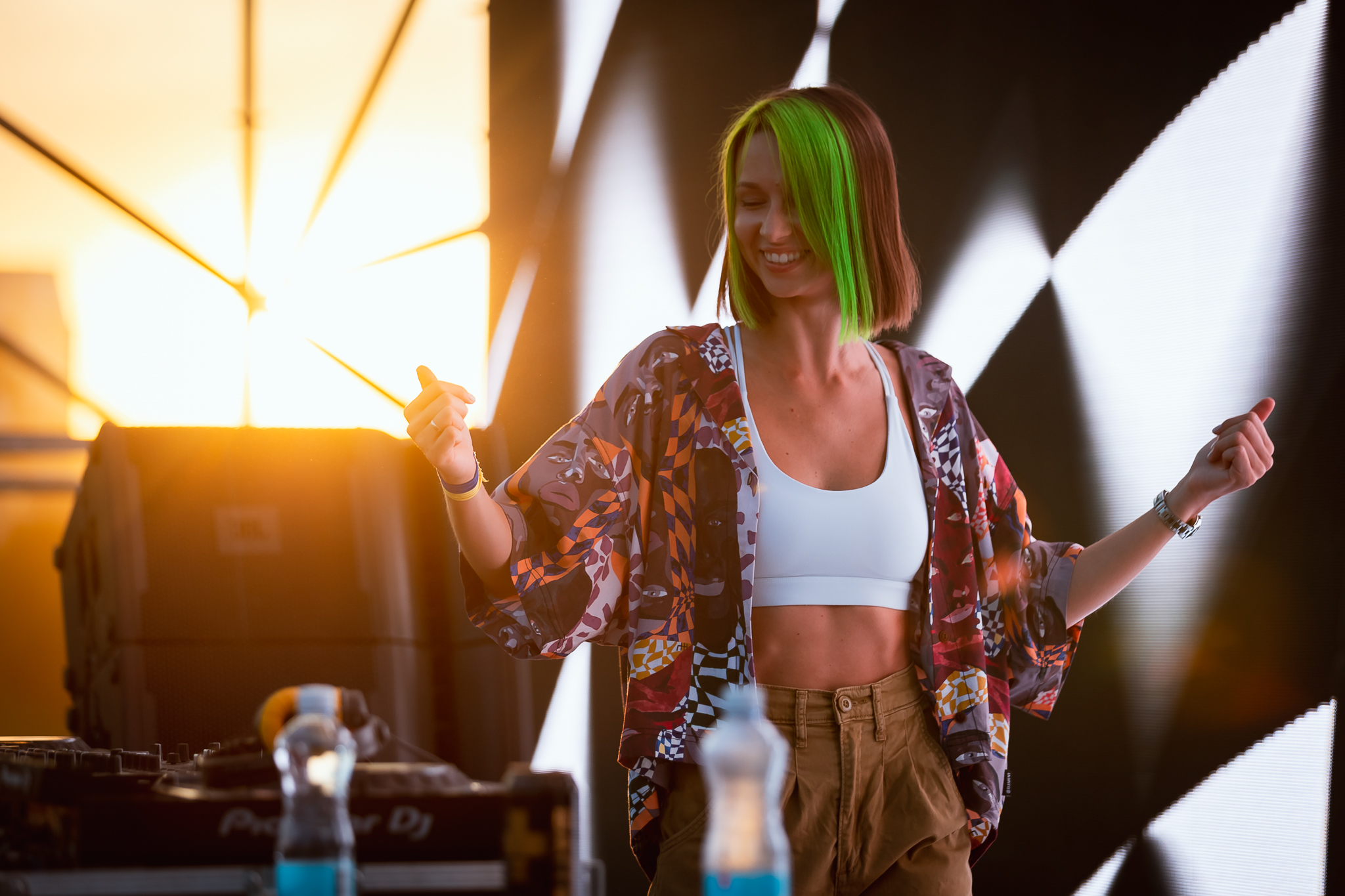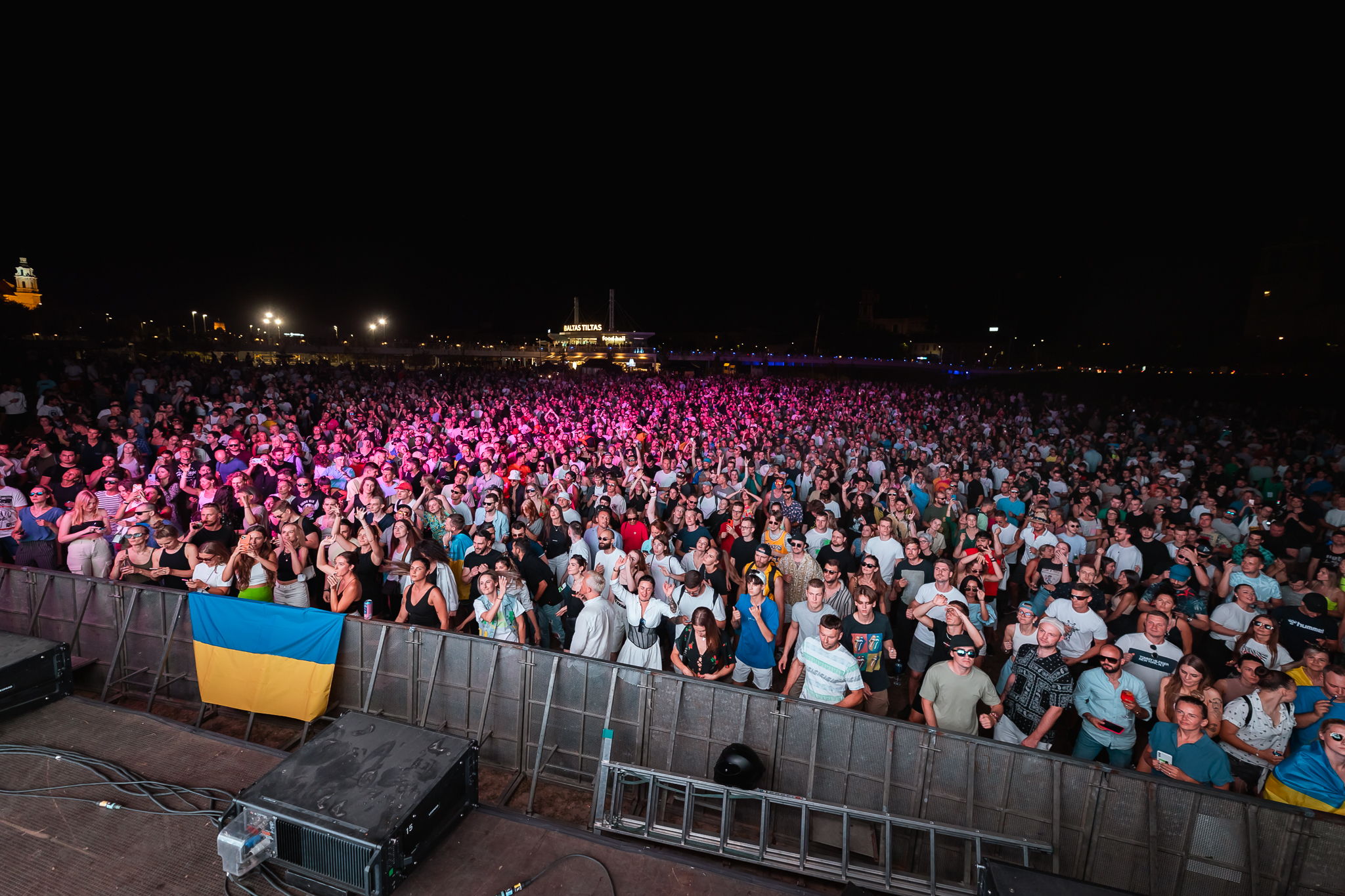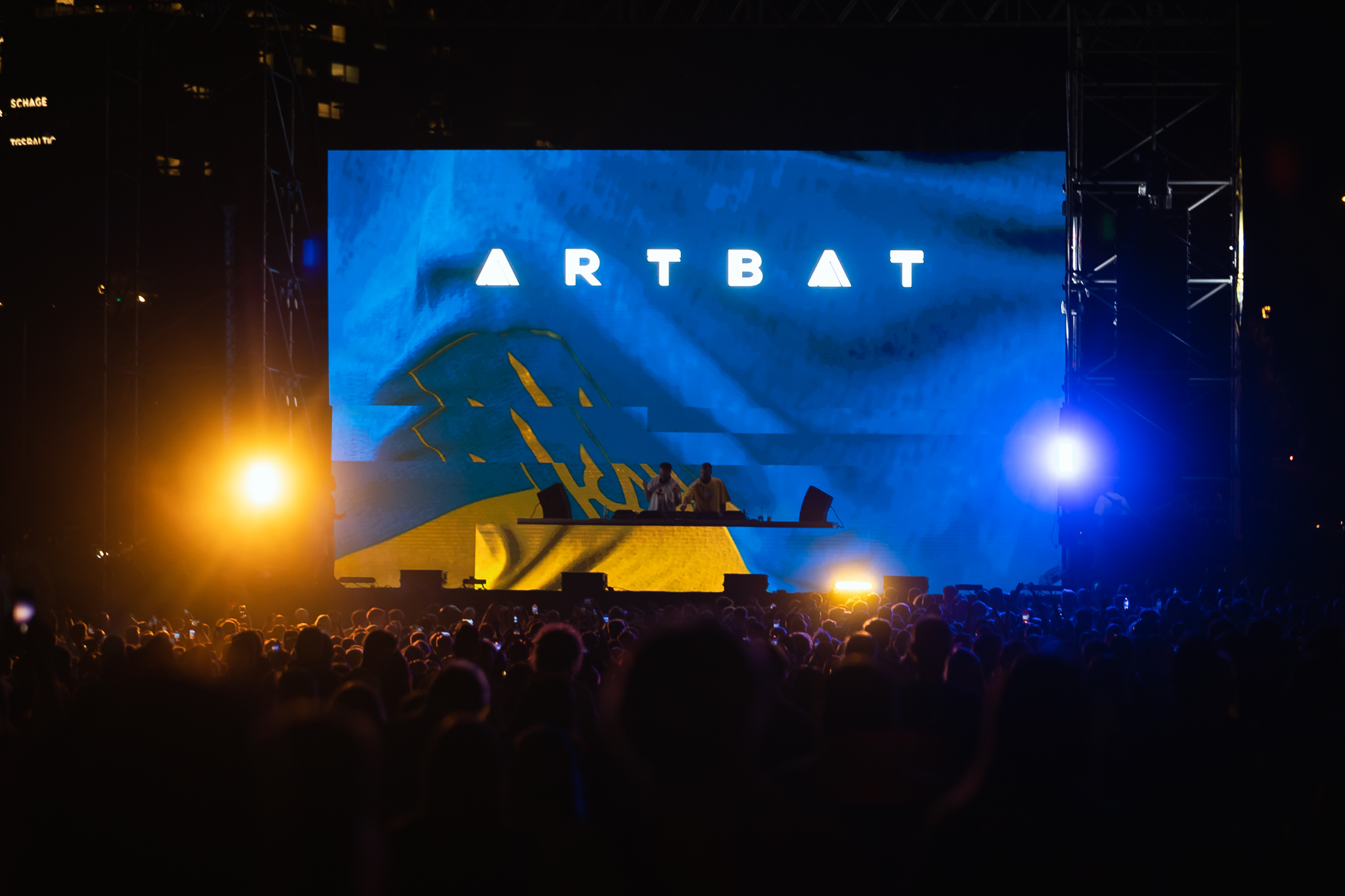On August 24, Vilnius hosted the celebrations for the Independence Day of Ukraine. Several Ukrainian DJs performed in the city square, including the duo ARTBAT. Our journalist Olena Pobochii went to the Lithuanian capital as part of the Ukrainian delegation to see how Lithuanians support Ukrainians and what is the reason for their desire to help.
As part of the events organized by the Ukrainian Association of Musical Events (UAME), funds were collected for the charity initiative Music Saves UA, which, among other things, helps with the evacuation of people from the front line and humanitarian aid to Ukrainians affected by the war. During the event, UAME collected more than 1 million hryvnias, and the collection continues to this day — you can join using the link.

